Lyceum of the Philippines University - Cavite partnered with public schools, the local government of Bacoor City, Cavite, Philippines, and the International Road Assessment Programme (iRAP) on a project investigating student safety on school journeys. The project, titled "Road Safety Assessment of Public High Schools in Bacoor, Cavite Using Star Rating for Schools (SR4S)," employed iRAP's 'Star Rating for Schools' (SR4S) to assess road conditions near public high schools and propose safety improvements. The project utilized a quantitative approach, assigning star ratings (1=high risk, 5=low risk) based on road characteristics analyzed through the SR4S web application. Results revealed that most schools received ratings below 3, indicating high-risk conditions. Speeding was identified as a major factor contributing to these low ratings. The project then simulated safety interventions, leading to improved star ratings after accounting for the simulated improvements. These findings, validated by iRAP's expertise, offer valuable insights and actionable recommendations for school administrators and local government. These findings offer valuable insights and actionable recommendations for school administrators and local government. The recommendations focus on enhancing school zone construction, management, and the creation of safe routes for students. This project not only contributes to improving road safety for Bacoor City schoolchildren but also provides a replicable model for similar assessments and improvements in other cities and municipalities.

4th PLACE
Impactful Collaboration of the Year Award
Road Safety Assessment of Public High Schools in Bacoor City
4th PLACE Impactful Collaboration of the Year Award
Lyceum of the Philippines University – Cavite - Philippines
"Empowering Safe School Journeys: Assessing and Improving Road Safety for Students"
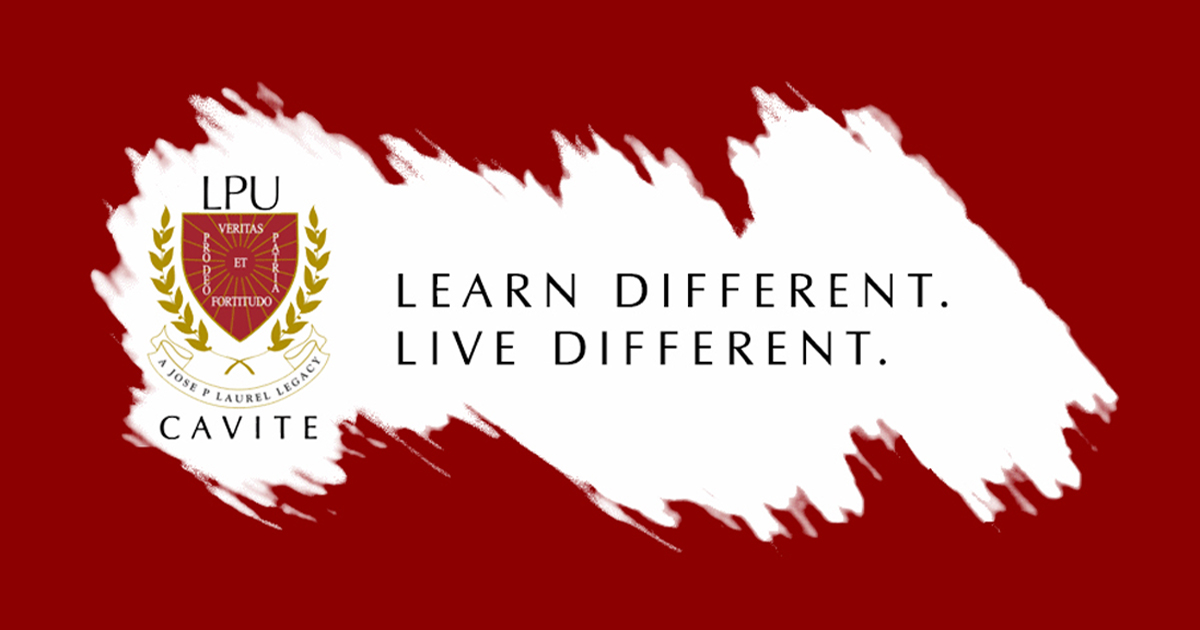
Engage on social media
(Official LPU Cavite Facebook Account)
(Official LPU Cavite- COECSA Facebook Account)
(Official LPU Cavite Instagram Account)
Summary
Key People

Dr. Maria Teresa O. Pilapil
Vice-President for Administration
Lyceum of the Philippines University - Cavite

Dr. Mark Irvin C. Celis
Vice-President for Academic Affairs
Lyceum of the Philippines University - Cavite

Dr. Arnel M. Avelino
Dean
College of Engineering, Computer Studies and Architecture,
Lyceum of the Philippines University - Cavite
Acknowledgements
Researchers: Angel Anne C. Deluta, Ms. Nicolette A. Marqueses, Ms. Kaela Marie E. Modesto,
and Engr. Drexler B. Sibal; Engr. Annalyn P. Romero, Department Chair – Engineering and Technology; Dr. Anjerick J. Topacio, Program Chair of Civil Engineering; City Government of Bacoor; Public High Schools in Bacoor City: Bacoor National High School – Molino Main, Bacoor National High School – Gawaran, Bacoor National High School – Tabing Dagat, Bacoor National High School – Villa Maria Annex, Eastern Bacoor National High School, City of Bacoor National High School – Salinas, City of Bacoor National High School – Georgetown, City of Bacoor National High School – San Nicolas, City of Bacoor National High School – Springville, Responsible Village Leaders Learning Academy High School
Images
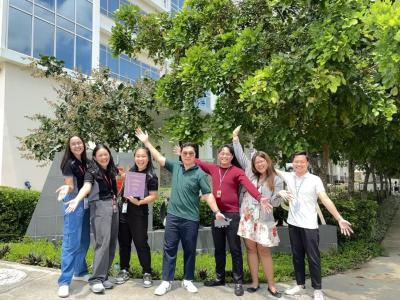
The research team alongside the Dean of the College of Engineering, Computer Studies and Architecture, Dr. Arnel M. Avelino
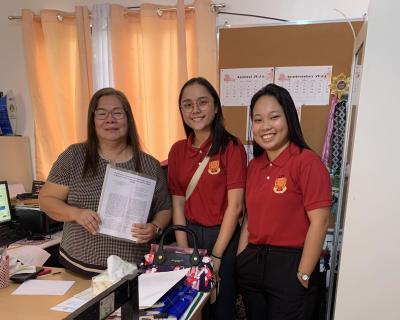
The research project results were discussed with collaborating schools. Pictured are the research team alongside Ms. Rachel R. Solis of City of Bacoor National High School - Georgetown.
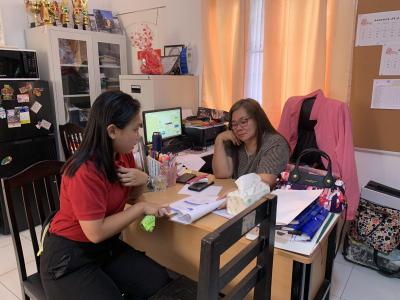
The research project results were discussed with collaborating schools.
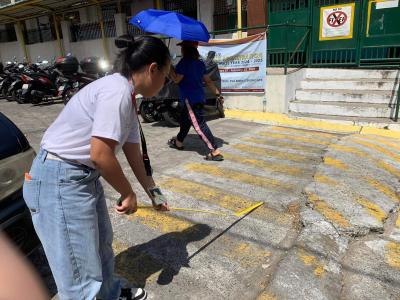
The research team conducting a road survey to provide input for SR4S assessment
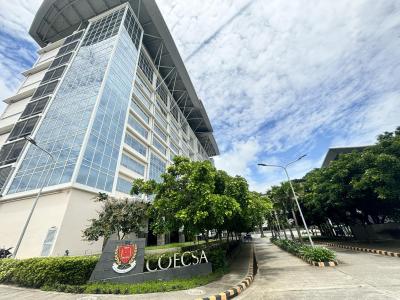
The College of Engineering, Computer Studies and Architecture (COECSA) of the Lyceum of the Philippines University (LPU) - Cavite.
IMPACT STORY
Impacting lifes
Road safety was becoming more and more of an issue in Bacoor, Cavite, particularly around schools. The frequent traffic, rapid automobiles, and lack of pedestrian amenities produced a dangerous atmosphere for students, parents, and educators. Amidst this challenge, our road safety assessment project, leveraging the power of the SR4S (Star Rating for Schools) tool, aimed to make a transformative difference.
Our team, motivated by a desire to change, worked with local authorities on the iRAP and SR4S systems. We thoroughly studied data to identify important areas that required improvement. It had an immediate and noticeable effect. Our efforts not only increased road safety, but also fostered a sense of community, with everyone working together to keep their children safe.
Our initiative didn’t just enhance road safety; it fostered a community spirit, united in the pursuit of protecting their children. Community workshops and awareness campaigns further strengthened this bond, educating drivers, parents, and students about road safety practices and the importance of vigilance. This collective effort resulted in a safer, more informed community.
This project stands as a testament to our unwavering dedication to saving lives and making a tangible difference in the community. By prioritizing the safety of the most vulnerable road users—our children—we not only improved their daily journeys to school but also instilled a lasting culture of road safety awareness. The success of this project highlights the power of collaboration, data-driven interventions, and the profound impact that focused efforts can have on the well-being of a community.
LEARNINGS
Lessons learnedThis study specifically highlights the significance of transportation engineering for road safety, focusing on student safety on their journey to school. Among the major learnings that were gathered included the need to control detailed on-site survey of road conditions to establish causal factors of road accidents. These surveys proved to be very useful in revealing the present situation and the current condition of the road segments thus identifying the extent of need for such programs. The Star Rating for Schools (SR4S) demonstrator feature was another good example and how new technology can be used to enhance safety. By using the SR4S tool, road safety issues were identified, and solutions can be tested through the tool before real solutions are implemented. This approach made sure that the advised measures recommended were feasible in their implementation. Effective road safety assessments require careful planning, efficient teamwork, and the use of reliable instruments. This strategy not only increases student safety but lays the groundwork for future improvements in traffic safety. For those looking to undertake a similar path, it is important to know that successful collaboration was another important factor in this study. Collaboration with local authorities and schools and engagement of the community enabled efficient data collection and implementation of interventions. Integrating sound tools like SR4S meant that the assessments had a clear structure, which made the outcomes more credible. In this research, the findings showed that with the principles of transportation engineering, advanced technology, and effective cooperation, road safety can be enhanced.
FUTURE PLANS
What's coming?
Our future plans are to strengthen and further enhance our work, broadening its impact across a wider region. Following the successful implementation of our projects in Bacoor City, we plan to extend our initiatives to other cities and municipalities in Cavite. This expansion will allow us to showcase our achievements and open up new opportunities for collaboration and dissemination of our research. We are committed to disseminating our findings more widely to ensure a greater reach and impact.
Furthermore, our dedication to the well-being of all students and staff is evident through our continuous efforts and active engagement with the community. We will present our research results to local communities, schools, and Local Government Units (LGUs), aiming to be a catalyst for positive change. By engaging with these groups, we ensure that our research has tangible benefits for society.
In addition to this, we recognize the importance of integrating pedestrian behavioral data into road assessments. This approach will broaden the scope of our analysis and inform future safety planning endeavors, ultimately contributing to safer and more efficient transportation systems.
In summary, we will build on our achievements by expanding our research scope and enhancing our dissemination efforts. By integrating our findings into educational initiatives and actively engaging with the community, we aim to make a meaningful and lasting difference in our field and society at large. Our commitment to continuous improvement and community involvement will drive us to achieve these goals, ensuring that our work has a positive and enduring impact.

